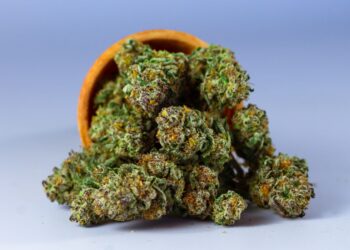There is a curious contradiction at the heart of risk. On the surface, it embodies uncertainty—unpredictable, uncontrollable, untamed. But emotionally, psychologically, even spiritually, risk can feel like its opposite: a reach for control. This reflection dives deep into the emotional terrain of risk-taking, from daily micro-decisions to life-altering gambles. Each story, stat, and psychological nuance illuminates the human tendency to dress in chaos in the garments of choice—and sometimes even find freedom in the game of chance.
The First Flip – Childhood Risks That Shape Perception
The earliest risks we take often go unnoticed, not for their lack of gravity but for their natural health. I remember stepping off the school bus on my first day alone, aged seven, armed with a vague understanding of which block to walk down. It was a coin toss between curiosity and fear. That simple walk, unsupervised and unscripted, was a roll of dice that taught me to equate action with ownership. Risks, no matter how small, deliver a reward from an agency, and in childhood, that reward is intoxicating.
Teenage Thrills – How Rebellion Masks Rational Calculations
Teenage years are an odd mix of hormonal combustion and peer validation. What felt like spontaneous rebellion—skipping class to hitchhike to a music festival 200 miles away—was, in retrospect, a highly calculated maneuver. We packed granola bars, checked weather apps, and brought enough cash to bribe a cab if needed. The illusion of spontaneity cloaked a deeper desire: control over the unpredictable. The emotional payoff of such teenage gambles was less about danger and more about mastering it. Every risk came with a backup plan, and that dichotomy fueled our confidence.
College Choices – Gambles Disguised as Logic
When I chose to double major in Philosophy and Game Theory, my academic advisor looked bewildered. “You’re either a genius or jobless in five years,” he said. The data was not kind—less than 8% of Philosophy majors end up in six-figure careers within a decade, according to a 2022 study from the American Educational Pathways Council. But I believed in hedging my bets. Philosophy sharpened intuition, Game Theory offered strategy, and combined they provided a toolkit for analyzing life as a matrix of risk and reward. It was not a safe choice, but it felt like an intelligent gamble.
First Job – The Emotional Yield of Financial Risk
My first post-graduate job offer was from a mid-tier consulting firm: $68,000 a year, full benefits, 401(k) match. Safe. Predictable. Soul-numbing. Instead, I joined a tech startup in a WeWork loft, earning $39,000 with no health insurance. But I negotiated 2,500 stock options, and by the third funding round, their value exploded. By 2023, when the startup was acquired by a conglomerate, those options were worth $174,300. The monetary reward was significant, but it was the sense of foresight—the illusion of calculated clairvoyance—that felt richer. Risk turned into narrative capital.
Digital Simulations – The Appeal of Quantified Risk
In the chaos of real-world unpredictability, digital experiences offer a curious refuge. Casino apps that pay real money present a fantasy where luck feels clean, rules are fixed, and outcomes are immediate. The dopamine loop is short and sharp: bet, wait, win, or lose—repeat. It is no wonder that in our search for manageable risks, even something like contained as casino apps that pay real money holds appeal — a self-contained world where wins and losses are quantified and clean. There is a psychological elegance in the risk of being bound by code, giving players a sense of agency in arenas where chance reigns.
Relationship Crossroads – The Gamble of Vulnerability
Telling someone “I love you” before they say it first is the social equivalent of going all-in pre-flop. There are emotional odds at play, subtle reads in tone, and body language. In 2019, I told a best friend-turned-maybe-lover how I felt, knowing I had a 65% chance of reciprocation based on months of interactions (yes, I calculated). She paused, smiled, and said, “Took you long enough.” That one line rewarded the risk with emotional clarity. Vulnerability, though it carries high stakes, often delivers the deepest form of control—the right to narrate your own story.
Relocation Roulette – Betting on a Zip Code
In 2021, I left New York for Portland with no job, no family, and only $5,200 in savings. The decision was gut-first, data-second. I had seen that Portland’s freelance creative industry was expanding by 18% year-over-year according to a regional economic report.

It was a loose justification, but enough to leap. I couch-surfed, booked gigs, and by month four, landed a $92,000/year remote contract. The move was not fearless—it was framed by probability, pattern recognition, and the belief that starting over could yield exponential returns.
Health Choices – Trading Certainty for Long-Term Benefit
I once delayed shoulder surgery for 18 months, hoping physical therapy would suffice. Statistically, 67% of rotator cuff tears heal non-surgically, but mine did not. The eventual surgery cost $11,300, and the rehab took 9 months. But the return was full mobility, no more pain meds, and a resumed tennis hobby. It was not the financial risk that haunted me—it was the interim uncertainty. Health decisions amplify the emotional weight of risk because the body is not an abstract number; it is home. Yet even here, risk becomes the price for reclaiming control.
Career Pivots – The Math of Midlife Change
At 37, I left a stable editorial director role earning $124,000/year to pursue solo consulting. I gave myself a 14-month runway, saved $38,000, and planned to secure three clients in six months. The first two months were dry. Then I landed a Fortune 500 client at $3,200/month and two startups at $1,800/month each. By month eight, I surpassed my old salary. The risk was not rash—it was modeled like a startup pitch deck. Spreadsheets, scenario planning, outreach funnel metrics. The lesson: boldness is less about jumping blindly and more about calculating the fall.
Family Planning – Emotional Risk with No Rehearsal
Deciding to have a child is a monumental leap into unknowns that cannot be rehearsed. When my partner and I decided to try, we factored in everything: fertility rates at our age (33 and 34), maternity coverage policies, the cost of daycare in our city ($1,670/month on average). And yet, no number could account for the magnitude of change. The risk felt cosmic. But here, too, was a form of control—the choice to welcome unpredictability. And in that act, risk became its own kind of order.
Final Thought – The Quiet Power of Choosing Uncertainty
Chance is not the absence of design—it is the partner to it. The allure of risk lies in its duality: both danger and dance. Each decision, from mundane to monumental, is a negotiation between chaos and control. And in those moments when we willingly step into uncertainty, something paradoxical occurs—we feel in command. Not because we eliminate risk, but because we choose it.












